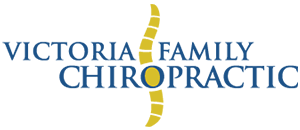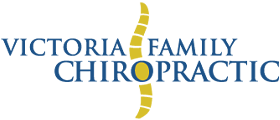Hope for Concussion In Victoria BC

Case Study
A patient came to me earlier this year with a severe case of post-concussion syndrome (PCS) in Victoria BC. She had previously had a concussion from a collision and fully recovered from that. She ended up getting another concussion from hockey (she had a university hockey scholarship), but this time the symptoms didn’t go away. She felt constantly motion sick, was sensitive to light and noise, couldn’t read or watch TV, and as it worsened she was nearly always dizzy and having memory loss issues. She had been an outstanding student and athlete but because of the concussive symptoms, she lost her scholarship.
She returned home, unable to work or attend school for over a year. She was referred to me and after a careful history and exam I felt there was a good chance we could help. One of the issues was that her neck was misaligned from the impact. She came in consistently for a little over a month, after which she had a complete resolution of her symptoms. I ran into her recently and was thrilled to hear that she had moved out of her parents’ home, had a job, was enrolled in school, and was considering a return to recreational hockey.
Research
Our knowledge about concussions is increasing with every passing day. It used to be believed that concussions were just a bruise to the brain. We now know that a concussion is a mild traumatic brain injury (TBI) caused by an impact that shakes the brain and/or injures the neck (cervical spine), such as a whiplash injury or, in the case of my patient, a hard hockey check. Concussions can affect anyone; they are caused by trauma from vehicle accidents, falls, or hits to the head. They are commonly portrayed as sports-related injuries and that certainly can be the case, but concussions are not limited to people engaging in impact sports.
I did a recent podcast with long-term Vancouver Canucks chiropractor Dr. Sid Sheard. He retired in 2013 after 30 seasons with the team and had a lot of experience with concussion. It has been more recently that the cervical spine has been found to be a part of concussion diagnosis. He corroborated this, saying that the majority of concussions the team’s medical staff treated involved the neck: the upper two vertebrae in particular.
Concussion symptoms generally occur shortly after an impact but can take weeks or even months for symptoms to arise. Many people believe that if you did not experience a loss of consciousness, you cannot have a concussion, but that is not the case. It is possible to get a concussion any time you take a hit to the head or body which results in a shaking of the head and/or neck. Most concussions resolve on their own within a week but if that is not the case, treatment such as chiropractic have been proven to be effective and nerve rehabilitation has shown promise. The following symptoms are associated with concussion. If anyone you know is experiencing most of the following, please advise them to seek medical attention.
Common Concussion Symptoms In Victoria BC
- Memory problems
- Dizziness or feeling motion sick
- Sluggish or foggy feeling
- Vision problems such as double vision, inability to focus or blurred vision
- Confusion
- Headache
- Sensitivity to noise or light
- Slowed reaction times
- Unsteadiness on feet or balance problems
Concussion Guidelines
The way concussions are treated is changing rapidly. It’s best to seek out medical care if you suspect a concussion; sometimes an X-ray, CT scan, or MRI may be required to rule out bleeding or fracture (broken bone). If you have gotten a concussion, it is recommended that you rest for 24 hours and avoid driving, riding, or exercising. If you are in pain, medication, ice, heat, or topical applications may be used as temporary pain relief.
After 24 hours, if symptoms are gone, you can try light exercise such as riding a stationary bike or walking. If concussion symptoms do not appear or escalate, you can slowly increase the intensity of your exercise regimen until you are back to normal. If at the end of a week symptoms are gone with full activity, athletes are typically cleared to return to play by a medical doctor.
This is just a general guideline to follow. For more information, speak with your doctor or check out the sport concussion assessment tool – 5th Edition.
One last comment: it is common to think that you should never let someone with a recent concussion sleep for a long period of time (like through the night). The theory is that it symptoms could get worse without anyone realizing it. This would only be applicable in extreme situations where medical care may not be readily accessible such as a remote location. Sleep is a natural part of healing and if medical care can be readily accessible, then it is safe to let them sleep.
Cale
Victoria Family Chiropractic
3200 Shelbourne St Suite 203 (250) 592-5553
www.vfchiro.com
OFFICE HOURS
Monday
7:30am - 1:00pm
Tuesday
1:00pm - 7:00pm
Wednesday
7:30am - 1:00pm
Thursday
1:00pm - 7:00pm
Friday
7:30am - 1:00pm
Saturday & Sunday
Closed
Victoria Family Chiropractic
3200 Shelbourne St Suite 203
Victoria, BC V8P 5G8




